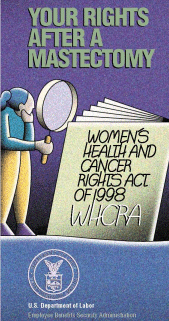 Reducing stress is one of the most effective steps you can take to improve your health, and it can be one of the most challenging. Stress is a constant in our lives, but if you’re proactive about managing it, you’ll be surprised at how much better you’ll feel. This post will discuss three very effective ways to relieve stress and reduce health issues.
Reducing stress is one of the most effective steps you can take to improve your health, and it can be one of the most challenging. Stress is a constant in our lives, but if you’re proactive about managing it, you’ll be surprised at how much better you’ll feel. This post will discuss three very effective ways to relieve stress and reduce health issues.
Yoga
Body postures of varying difficulty and controlled breathing exercises increase your physical flexibility, while meditation helps you focus on being peaceful and calm. This powerful mind / body combination makes yoga an extremely effective stress reliever. Yoga practitioners also enjoy increased strength and balance. Prominent medical facilities such as the Mayo Clinic recognize the role of yoga and meditation in health promotion and stress management.
In yoga, movements are precise and require concentration, which draws your attention away from your hectic life and quiets your mind, so you release tension and anxiety. In addition to reducing stress, yoga has been proven to help with insomnia, depression, and fatigue. Yoga also lowers blood pressure and is used as a weight loss aid.
Journaling
Often we hide thoughts and feelings that cause stress, and we do our best not to think about them. However, stress is like any other untreated wound in that it becomes larger and more damaging if we don’t take care of it. Journaling, which is simply writing down your thoughts, allows you to express those feelings and understand their effects on your health.
When you see those thoughts on paper—especially after the strong emotions connected to them have passed—they lose their power to upset you, and their hold on your mind is broken. The stress these thoughts caused dissipates as a result. When you look objectively at what is going through your mind, you can define what is causing your stress and take steps to remedy it. For many, the act of writing helps them process their feelings, and that alone helps their stress levels.
Meditation
A quick and easy way to reduce stress, meditation is one mental technique of focusing your attention away from stressful thoughts and situations, giving you a sense of balance and peace. In addition to stress relief, the Mayo Clinic has found that meditation helps with pain management, allergies, binge eating, and sleep problems.
When you meditate, you intentionally move your mind into a new state of relaxation that extends throughout your body. Stressful feelings and thoughts are released as you move into a deeper state of awareness. As you become more proficient in meditation, you control your conscious thoughts more easily and relax more quickly.
To learn yoga, journaling, or meditation, search for classes in your area. Look at the instructors’ websites, or call them, and decide who seems knowledgeable and approachable. Often instructors will offer a class or a visit for low or no cost. Don’t be afraid to try something new to reduce your stress.
For more helpful tips on health and wellness, Like us on Facebook.









